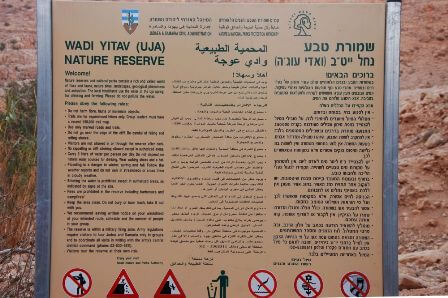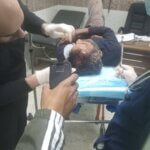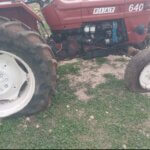Israel declares al-Auja spring a ‘Nature Reserve’

Isreal Civil Administration has declared the area around al-Auja spring a nature reserve. Once again disguising its annexation of Palestinian land with Orwellian double speak – using the term ‘Nature Reserve’ to describe land forcibly taken from Palestinians – but from now on to be used exclusively by Israelis.
For centuries al-Auja spring provided fresh water for people who built their communities around Ras al-Auja and al-Auja. The area was famous for its abundance of water, fertile soil and hot climate. Banana and citrus groves were plentiful and people enjoyed a high standard of living.
As recently as 15 years ago, Palestinians from various parts of the West Bank recall visiting the area where people could picnic, swim in the spring and enjoy the natural environment.
This ‘re-zoning’ of land will most likely have a direct affect on the Bedouin shepherds of Ras al-Auja. Their herds feed from the limited vegetation growing on hills surrounding the spring. Shepherds in the Jordan Valley are often arrested and fined for grazing herds on land Israel has declared illegal for Palestinians use.
Palestinians have limited control over 5% of land in the Jordan Valley. Israeli colonies control 50% and 45% have been declared ‘military firing zones’, ‘border zones’ or ‘nature reserves’ – many Palestinian communities are located in these areas. By declaring land around al-Auja spring a nature reserve, Israel is attempting to legitimize its forced displacement of the indigenous people who used to live there. National Nature and Parks Authority hope to attract tourists to enjoy the natural environment of the area. Their sign prohibits ‘anybody from interfering with the natural ecology or fauna’.
In reality, Bedouin inhabitants of Ras al-Auja live in poverty because they are forced to buy expensive water in portable water tankers from Mekorot filling stations. Families, communities and Bedouin culture are being destroyed because Israel is using violence to take land and natural resources where they live. Large scale theft of water has caused the spring to dry completely forcing all life from the area.
In 1972, Mekorot drilled two deep water wells around the source of the spring. Two more were built in the 1990’s. These deep water wells were built to pump water from the eastern aquifer to the five agricultural colonies surrounding al-Auja; Yitav (1970), Gilgal (1970), Niran (1977) Na’ama (1982) and Omer’s farm (2005). All of which enjoy unlimited water to produce large quantities of; dates, bananas, grapes, lemons, herbs, vegetables and livestock for export. Yitav, a colony established for Russian Jews with a population of 105 has a communal swimming pool while Palestinian families living within 2km live in poverty because they are prohibited from having running water.
Renaming the area Yitav, and failure of Israel to acknowledge the principle of common land which has existed in the area for centuries are tactics commonly used to erase Palestinian existence from vast areas of the Jordan Valley.
Transferring a settler population to occupied territory is a violation of International Humanitarian Law. Israeli control of the vast majority of land and water resources in the valley comes at the expense of Palestinians who are heavily discriminated against under a system of apartheid.
NOTES
[1] Stop the JNF ‘Environmental Destruction and Racism’




